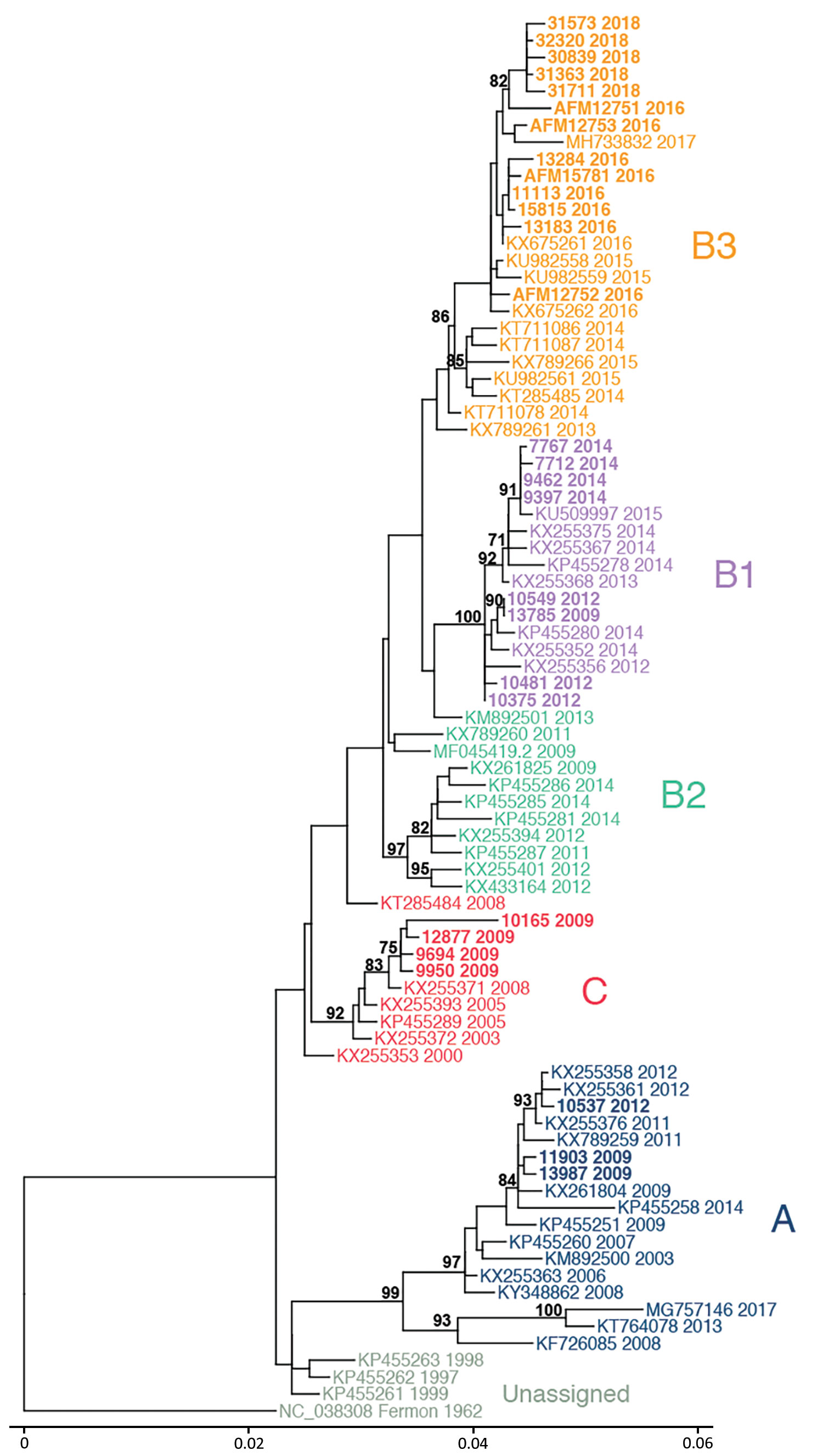Volume 25, Number 9—September 2019
Research
Association of Enterovirus D68 with Acute Flaccid Myelitis, Philadelphia, Pennsylvania, USA, 2009–2018
Figure 2

Figure 2. Phylogenetic relationships between Philadelphia whole enterovirus D68 (EV-D68) genomes, including AFM cases, Philadelphia, Pennsylvania, USA, 2009–2018. EV-D68 polyprotein sequences from GenBank (n = 55) and this study (n = 28) were used to build a maximum-likelihood tree. EV-D68 clades, defined in prior publications, are indicated. Sequences from this study are indicated in bold, and AFM cases are indicated with that prefix. AFM, acute flaccid myelitis. Scale bar indicates nucleotide substitutions per site.
Page created: August 21, 2019
Page updated: August 21, 2019
Page reviewed: August 21, 2019
The conclusions, findings, and opinions expressed by authors contributing to this journal do not necessarily reflect the official position of the U.S. Department of Health and Human Services, the Public Health Service, the Centers for Disease Control and Prevention, or the authors' affiliated institutions. Use of trade names is for identification only and does not imply endorsement by any of the groups named above.